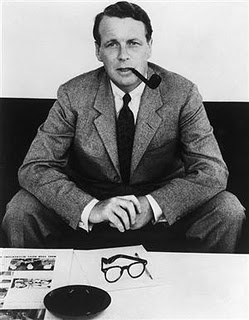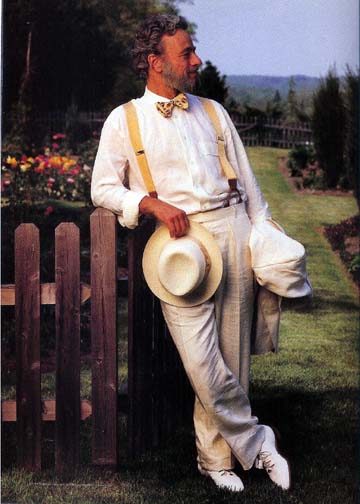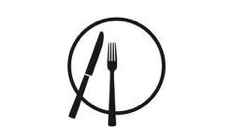I got an e-mail yesterday from my friend Kensho, who had to give some sort of mock-pre-concert lecture for his conducting seminar at the Curtis Institute. Well aware of my prowess in the field (and who isn’t?), he asked if I had any advice. I proceeded to type out a 3 page deluge of information, everything from which software to use to make audio clips (I use Switch, MP3 Trimmer, and Audio Hijack Pro), the ratio of talking about a composer’s bio to his music (like 1:10), and whether or not to include a Q&A (don’t).
 I rambled into the message box and cleaned things up later, but I never had any doubt about sending so much detailed, practical information, because I know that that’s what people like best. Read David Ogilvy’s Ogilvy on Advertising; not only does he provide a wealth of specific information about making print and TV ads (the very reason my web site features fonts with serifs and black text on white background), but he proves that it’s the best way to sell a product too. Ogilvy was first and foremost a research man, and from his research he learned that the primary function of an ad was to inform a potential customer (this is not to mention his pioneering work in branding). The ads that had the most copy invariably sold the most product. And if you wouldn’t believe a man who looked like that, you’re crazy.
I rambled into the message box and cleaned things up later, but I never had any doubt about sending so much detailed, practical information, because I know that that’s what people like best. Read David Ogilvy’s Ogilvy on Advertising; not only does he provide a wealth of specific information about making print and TV ads (the very reason my web site features fonts with serifs and black text on white background), but he proves that it’s the best way to sell a product too. Ogilvy was first and foremost a research man, and from his research he learned that the primary function of an ad was to inform a potential customer (this is not to mention his pioneering work in branding). The ads that had the most copy invariably sold the most product. And if you wouldn’t believe a man who looked like that, you’re crazy.
 I love specific, detailed, technical information, and that element might be my most favorite thing about Finishing the Hat, Stephen Sondheim’s new book. The first chapter is a primer on rhymes – perfect rhymes, slant rhymes, masculine and feminine, what an “identity” is. It’s all stuff that you could get in an average poetry guide (or on Wikipedia for that matter), but when you read Sondheim’s descriptions and his impassioned reasoning about why rhymes are important, you connect deeply with him as an artist and a craftsman. You realize that for all his virtuosity, the key to his success is that he has humbled himself before the basics of his craft time after time after time (or beau after beau after beau, as the case may be.)
I love specific, detailed, technical information, and that element might be my most favorite thing about Finishing the Hat, Stephen Sondheim’s new book. The first chapter is a primer on rhymes – perfect rhymes, slant rhymes, masculine and feminine, what an “identity” is. It’s all stuff that you could get in an average poetry guide (or on Wikipedia for that matter), but when you read Sondheim’s descriptions and his impassioned reasoning about why rhymes are important, you connect deeply with him as an artist and a craftsman. You realize that for all his virtuosity, the key to his success is that he has humbled himself before the basics of his craft time after time after time (or beau after beau after beau, as the case may be.)
There’s a young German composer who’s recently come to my attention named Robin Hoffman. He mainly writes for film, and if you just peruse his music (which is offered very generously on his web site), you can hear how immaculately he has absorbed every single style that Hollywood has turned out over the past 100 years. It’s an extremely impressive accomplishment. What’s even better though, is that he publishes a “Daily Film Scoring Bit” on his blog. It’s really valuable information, and you can tell that this man knows his métier intimately.
It’s hardly news, but there’s an awful lot of crap on the internet. But if you can weed through it, you’ll find what you need. I’m working on a band piece right now, and it was very helpful to find out not only that you can indeed mute a vibraslap, but also just how to do it, which I’m guessing is something not many people knew before they saw this video:
 And then there’s my friend André’s new web site, dishnotes.com, which I really have to recommend to anyone who lives in Chicago and likes to eat out at decent restaurants. It allows you to review individual dishes on restaurant menus throughout the city. The ramifications are really pretty cool: a) you know what to order when you go to a new restaurant, and b) chefs could use the aggregated data to improve their offerings. I think there are lots of other ramifications, but those are probably a little too specific in terms of trade secrets for right now.
And then there’s my friend André’s new web site, dishnotes.com, which I really have to recommend to anyone who lives in Chicago and likes to eat out at decent restaurants. It allows you to review individual dishes on restaurant menus throughout the city. The ramifications are really pretty cool: a) you know what to order when you go to a new restaurant, and b) chefs could use the aggregated data to improve their offerings. I think there are lots of other ramifications, but those are probably a little too specific in terms of trade secrets for right now.
On another note, I specifically exhort everyone to boycott the iTunes store until they get this composer thing sorted out. That is to say, Composer information no longer downloads from the iTunes store into your iTunes library, which, as I have spent much time explaining to the Apple people, is a deal-breaker for people who primarily purchase classical music. The amazon mp3 store has better deals anyway, and much more legible track information and album covers.
Just shop there, and please lets not even start with this AAC v. mp3 business, you can’t tell the difference anyway.